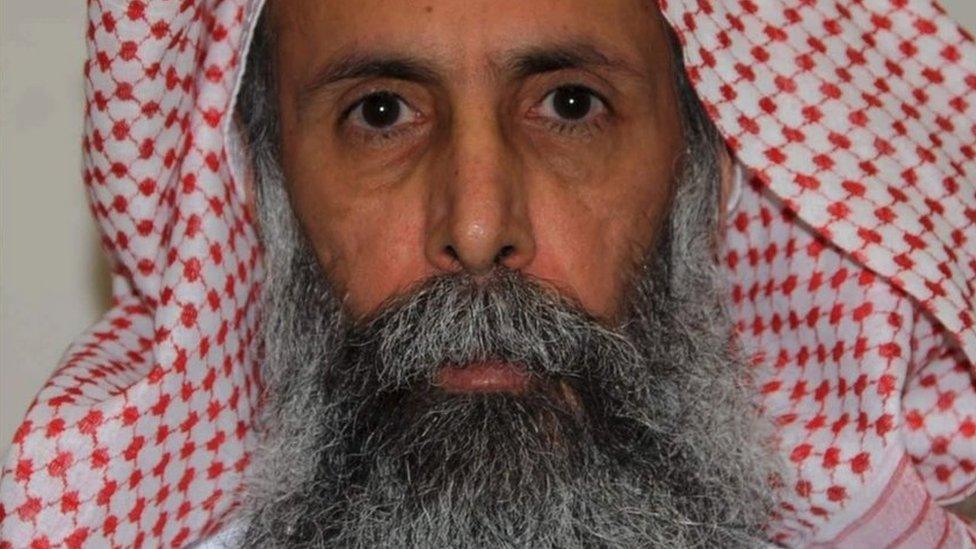Fifteen Saudi Shia sentenced to death for 'spying for Iran'
- Published
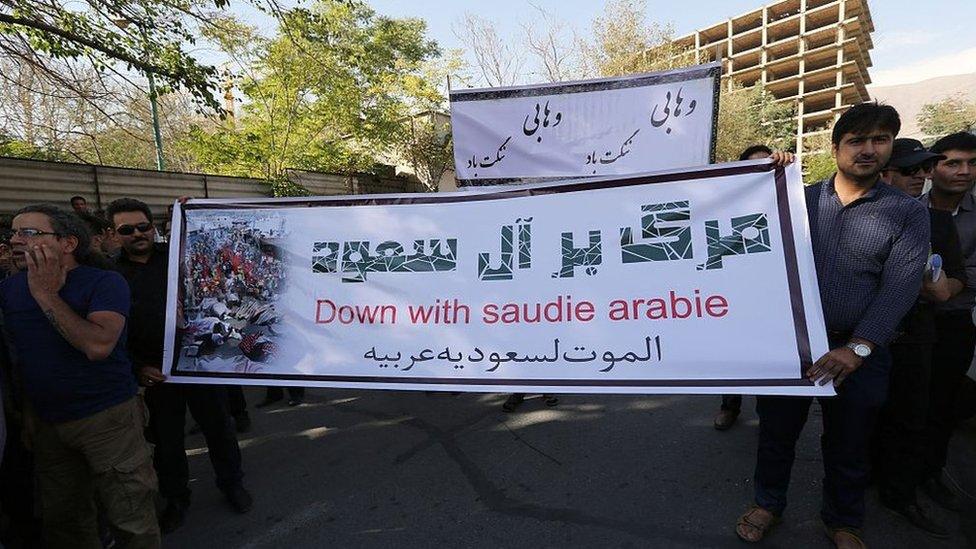
Tensions between Sunni-ruled Saudi Arabia and Shia-led Iran have escalated in the past year
A court in Saudi Arabia has sentenced 15 people to death for spying for Iran and handed 15 others prison terms ranging from six months to 25 years.
They were among 32 men - comprising 30 members of the kingdom's Shia Muslim minority, an Iranian national and an Afghan - put on trial in February.
Prosecutors accused them of treason, setting up a spy ring, and passing on sensitive data on military zones.
Tensions between Saudi Arabia and Iran have escalated in the past year.
Sunni-ruled Saudi Arabia broke off diplomatic relations with Shia-led Iran in January following the storming of its embassy in Tehran by protesters angered by the execution of the prominent Saudi Shia cleric, Sheikh Nimr al-Nimr.
Saudi officials insisted Nimr was guilty of terrorism offences, but Iran's supreme leader said he had been executed solely for his criticism of the Sunni monarchy.
The regional powers also back opposing sides in the wars in Syria and Yemen.
'Mockery of justice'
Amnesty International said, external the trial of the 32 men was "grossly unfair".
Taha al-Hajji, a lawyer who represented most of the defendants, told the human rights group that his clients were detained between 2013 and 2014 without an arrest warrant and held for almost three months in secret.
Some told the court they were threatened with solitary confinement and that they would be banned from having contact with their families if they did not sign "confession" documents.
After nearly three years in custody without charge or trial, the defendants were brought before the secretive Specialised Criminal Court in Riyadh in February, where they were handed a list of charges that was almost 100 pages long. Some met their lawyers for the first time, Mr Hajji said.
Several of the lawyers subsequently complained that they were not allowed to visit their clients, view evidence, and prepare their defences adequately.
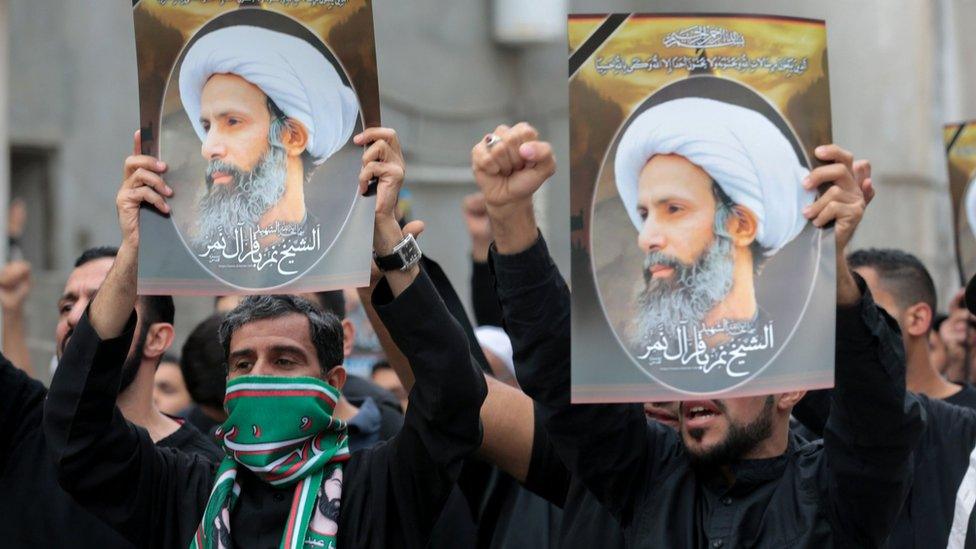
Iran condemned the execution in January of prominent Saudi Shia cleric Sheikh Nimr al-Nimr
"Sentencing 15 people to death after a farcical trial which flouted basic fair trial standards is a slap in the face for justice," said Samah Hadid, deputy director for campaigns at Amnesty's Beirut office.
"The entire legal proceedings in this case have made a mockery of justice."
At the start of the trial, it was reported that the defendants included several well-known figures in the Shia community who were not involved in politics, including an elderly university professor, a paediatrician, a banker and two clerics.
But Saudi media said on Tuesday that many were former employees of the defence and interior ministries.
Most were from Eastern Province, home to the majority of Saudi Arabia's Shia.
Shia make up 10 to 15% of the kingdom's 28 million population, and many assert that they suffer systematic discrimination in public education, the justice system, government employment and religious freedom.
Dissent is rarely tolerated, and between 2011 and 2013 more than 20 people were shot dead by security forces and hundreds more detained during protests by Shia calling for an end to discrimination.
Shootings and petrol bomb attacks also killed several police officers.
- Published22 February 2016
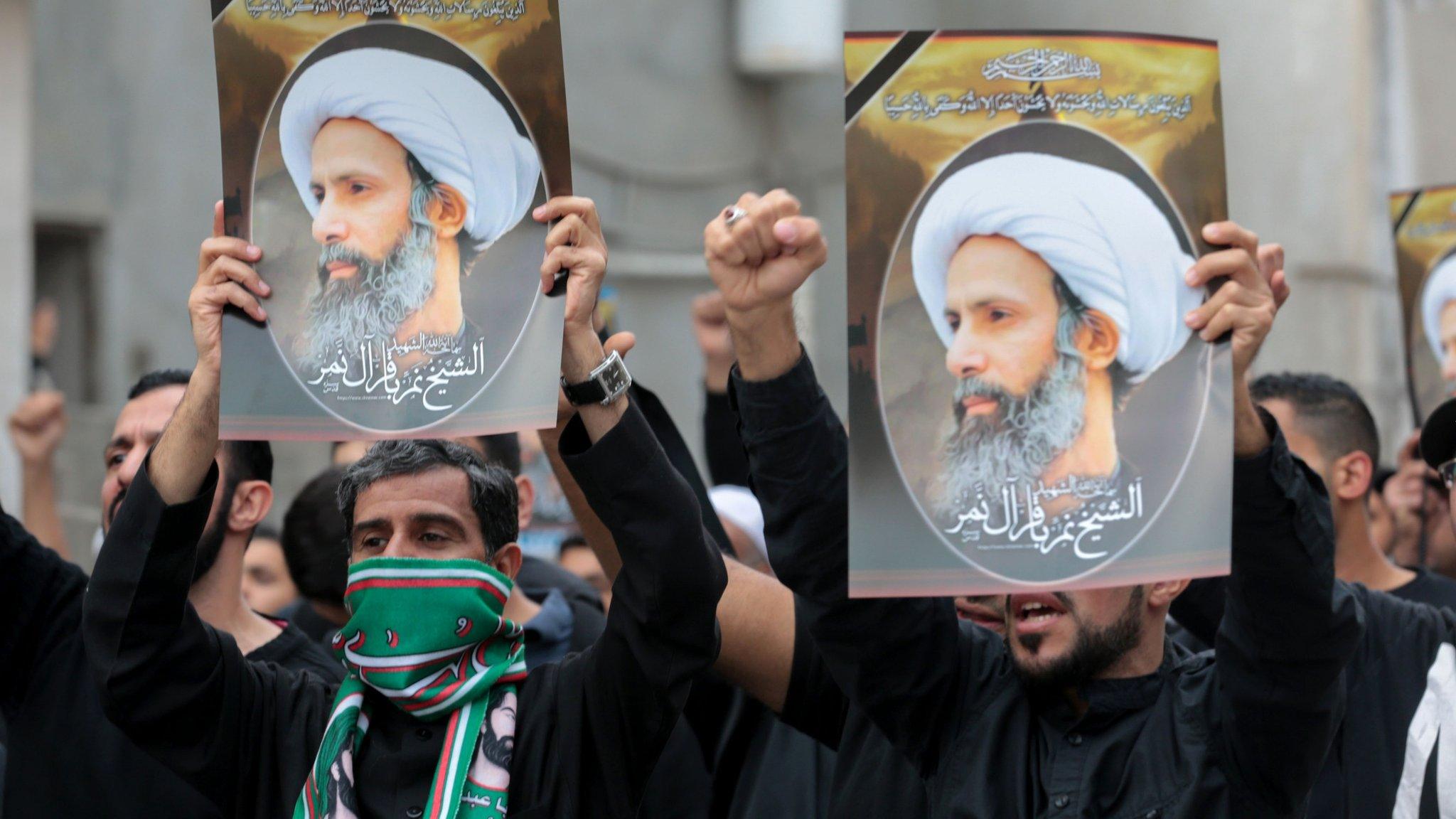
- Published22 January 2016
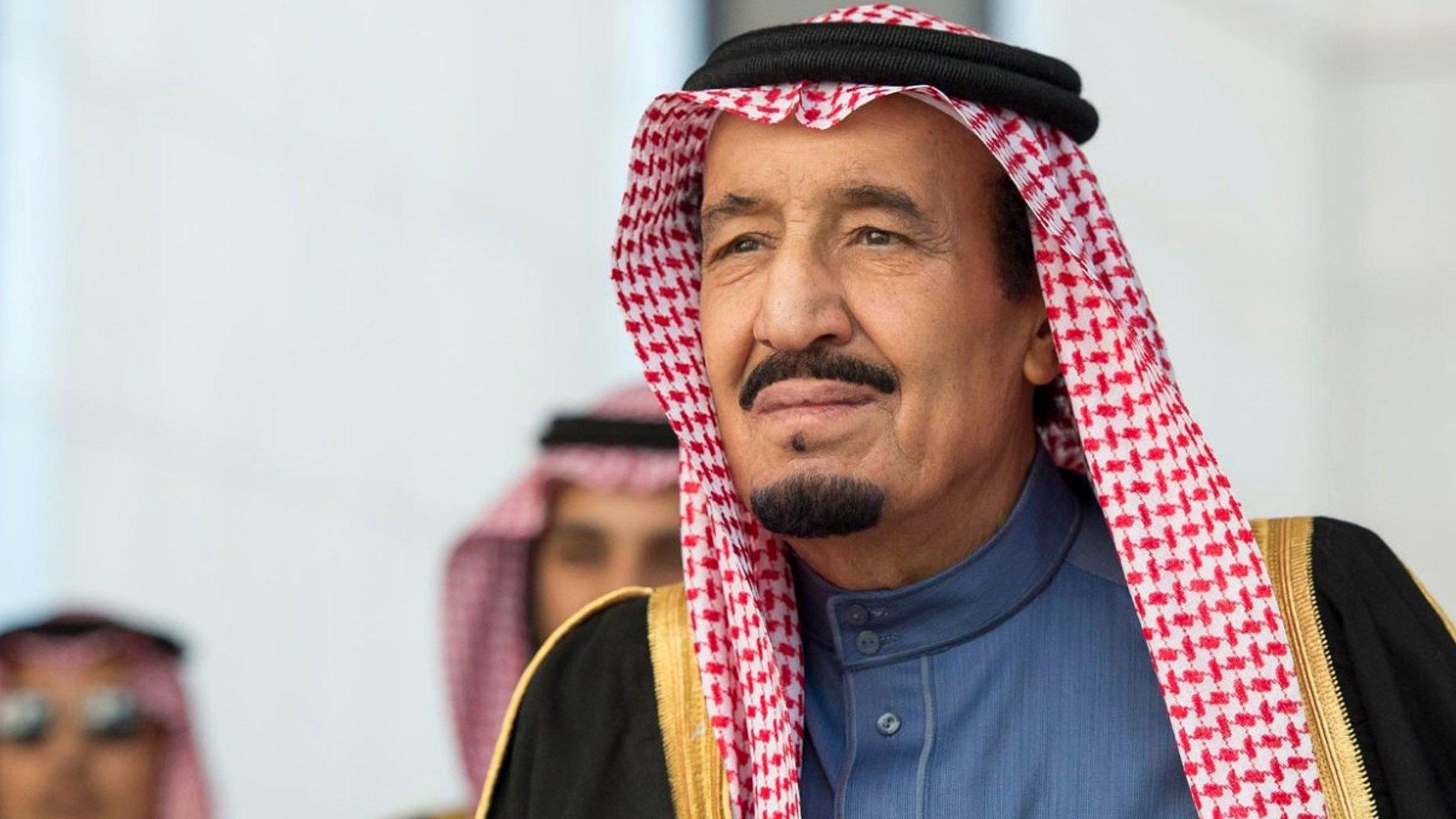
- Published10 January 2016
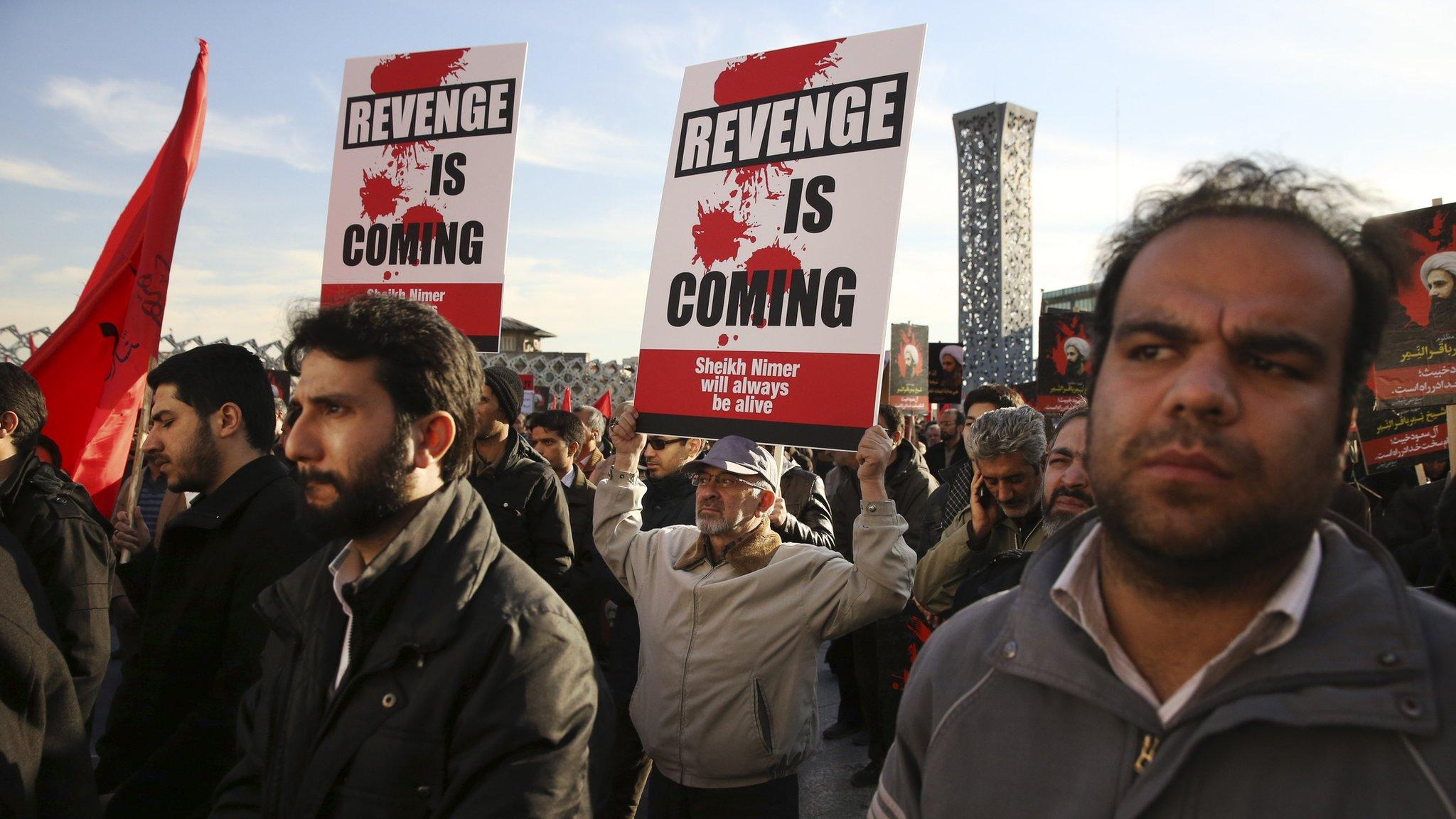
- Published4 January 2016
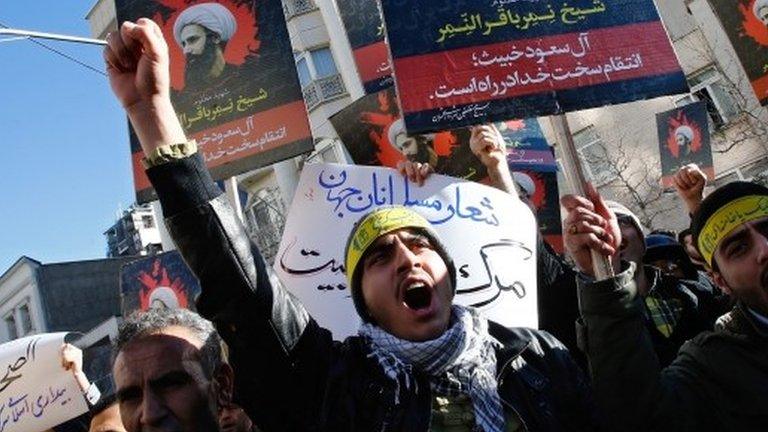
- Published4 January 2016
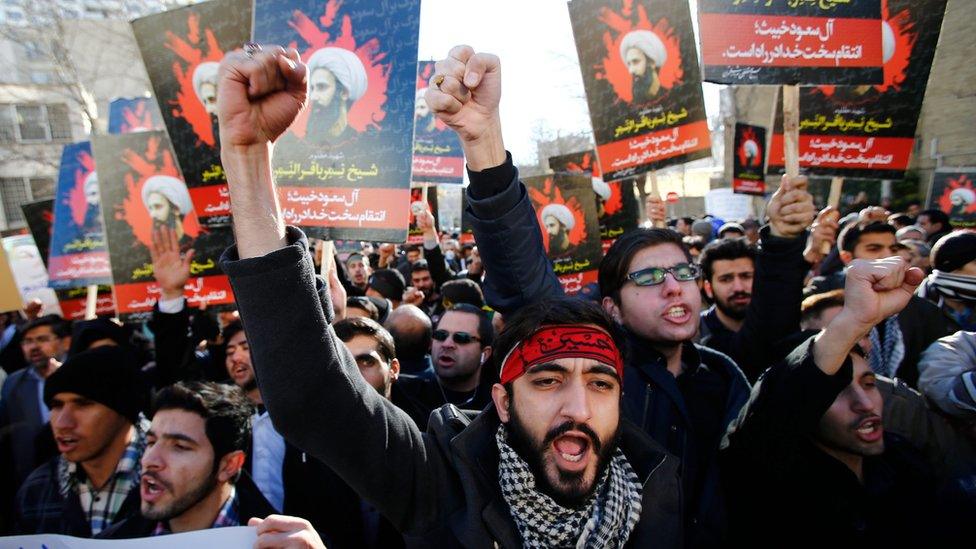
- Published3 January 2016
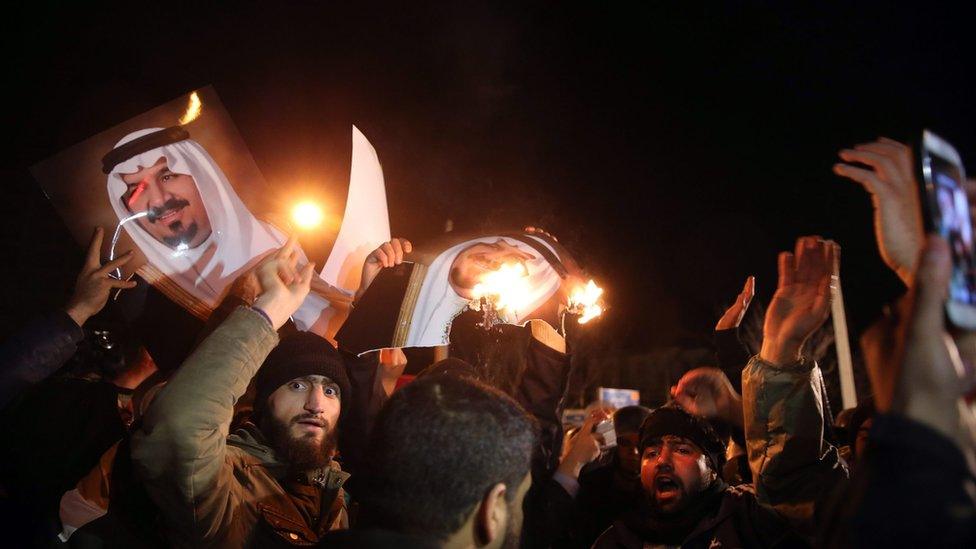
- Published3 January 2016
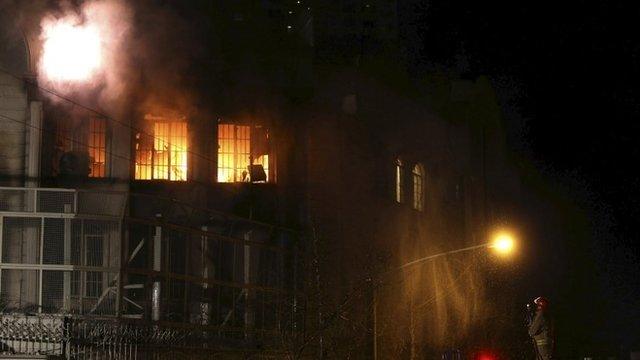
- Published2 January 2016
